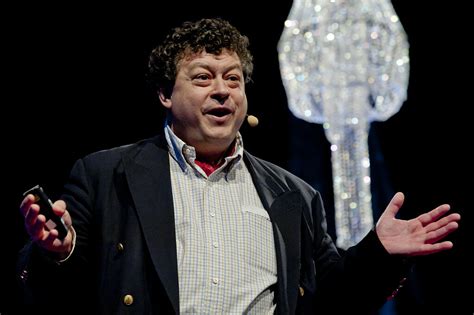A Quote by Susan Sontag
Intelligence is not necessarily a good thing, something to value or cultivate. It's more like a fifth wheel - necessary or desirable when things break down. When things go well, it's better to be stupid ... Stupidity is as much a value as intelligence.
Related Quotes
The paramount doctrine of the economic and technological euphoria of recent decades has been that everything depends on innovation. It was understood as desirable, and even necessary, that we should go on and on from one technological innovation to the next, which would cause the economy to "grow" and make everything better and better. This of course implied at every point a hatred of the past, of all things inherited and free. All things superceded in our progress of innovations, whatever their value might have been, were discounted as of no value at all.
I like silly things. I think that "silly-stupid" or "stupid-smart" might be my philosophy, which is to combine a veneer of intelligence with an undercurrent of crass stupidity. Sometimes that stupidity is in the form of the actual joke that's being told, or it could be in the way the joke is told. Like, repetition is really stupid, but it's really funny. Or it could be that the punchline itself is stupid.
Modern man has no real "value" for the ocean. All he has is the most crass form of egoist, pragmatic value for it. He treats it as a "thing" in the worst possible sense, to exploit it for the "good" of man. The man who believes things are there only by chance cannot give things a real value. But for the Christian the value of a thing is not in itself autonomously, but because God made it.
Develop all four intelligences. PQ (physical intelligence) which represents 70 trillion cells that fight disease and digest your breakfast. IQ (intellectual intelligence) EQ (emotional intelligence) the sensing and wisdom of the heart - - and SQ (spiritual intelligence) having to do with meaning, purpose and integrity around your selected value system and your believed source. When combined, they change the world for good.
It may well happen that what is in itself the more certain on account of the weakness of our intelligence, which is dazzled by the clearest objects of nature; as the owl is dazzled by the light of the sun. Hence the fact that some happen to doubt about articles of faith is not due to the uncertain nature of the truths, but to the weakness of human intelligence; yet the slenderest knowledge that may be obtained of the highest things is more desirable than the most certain knowledge obtained of lesser things.
Human beings have a variety of intelligences, such as cognitive intelligence, emotional intelligence, musical intelligence, kinesthetic intelligence, and so on. Most people excel in one or two of those, but do poorly in the others. This is not necessarily or even usually a bad thing; part of Integral wisdom is finding where one excels and thus where one can best offer the world one's deepest gifts.
Desired substance, things, patterns, or sequences of experience that are in some sense "good" for the organism - items of diet, conditions of life, temperature, entertainment, sex, and so forth - are never such that more of the something is always better than less of the something. Rather, for all objects and experiences, there is a quantity that has optimum value. Above that quantity, the variable becomes toxic. To fall below that value is to be deprived.
You have to be reminded of a basic fact: intelligence belongs to the watching consciousness; memory belongs to the mind. Memory is one thing - memory is not intelligence. But the whole of humanity has been deceived for centuries and told indirectly that the memory is intelligence. Your schools, your colleges, your universities are not trying to find your intelligence; they are trying to find out who is capable of memorizing more. And now we know perfectly well that memory is a mechanical thing. A computer can have memory, but a computer cannot have intelligence.


































